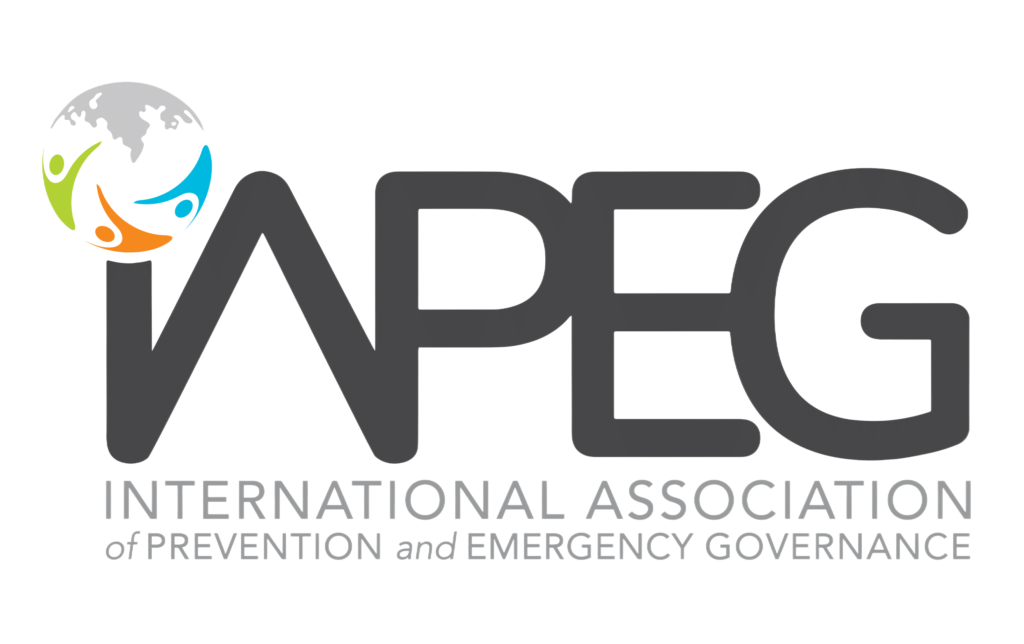
Menu

The International Association of Prevention and Emergency Governance (IAPEG) is committed to fostering a global culture of integrity, transparency, and excellence in prevention management, emergency response, and governance. This Code of Ethics establishes the principles that govern the conduct of our members and affiliated organizations, ensuring that their actions promote the safety, resilience, and well-being of all communities.
�
Members of IAPEG shall act with integrity and honesty in all professional activities. This includes providing accurate information, honoring commitments, and maintaining the highest ethical standards in their work.
Members shall prioritize public safety, health, and welfare in their professional practice, taking proactive measures to minimize risks, prevent crises, and protect vulnerable populations.
Members shall act transparently in all decision-making processes, communications, and operations. They must provide clear and timely information to stakeholders and avoid withholding relevant information that may impact public safety or the effectiveness of emergency governance measures.
Members are responsible for using technology ethically and in ways that benefit society. The use of data, artificial intelligence, and other technological tools must be guided by principles of privacy, security, and transparency.
Members are entrusted with sensitive information and must maintain the confidentiality and privacy of this data. Any unauthorized disclosure of confidential information is prohibited, unless legally required or ethically justified to prevent harm.
Members are accountable for their actions and decisions. They shall accept responsibility for their role in prevention and emergency management, ensuring transparency and accountability in all activities.
Members must act impartially and objectively, avoiding conflicts of interest that could compromise their professional judgment. If a conflict arises, members are required to disclose it promptly and take appropriate steps to mitigate its impact.
Members must respect cultural diversity and work to incorporate culturally sensitive approaches into prevention and emergency governance. Engagement with local leaders, traditions, and community norms should be conducted in an inclusive and respectful manner.
Members shall promote sustainability and environmental protection in all activities. They must consider the environmental impact of their actions and seek to minimize harm to ecosystems and natural resources.
Members in leadership roles are expected to exemplify ethical behavior, act as role models for their peers, and promote a culture of ethical conduct within their organizations and communities.
All members must uphold and promote human rights, recognizing and respecting the dignity of all individuals regardless of race, gender, religion, ethnicity, nationality, or any other distinguishing characteristic. Discrimination, harassment, and exploitation of any form are strictly prohibited.
Members are expected to maintain and continually improve their professional knowledge, skills, and competence. They shall participate in ongoing education, training, and professional development opportunities to stay current with best practices and emerging trends in prevention and emergency governance.
Members shall foster a culture of collaboration, working with diverse stakeholders, including government agencies, community groups, NGOs, and the private sector, to strengthen prevention and emergency management systems. This includes sharing knowledge, resources, and best practices to achieve common goals.
Members shall strive for continuous improvement and embrace innovation in prevention management and emergency response. This includes exploring new technologies, methodologies, and approaches that enhance resilience and public safety.
“Et non mutationem nunc si orci est genere opiniones purus ea moreae est erat quo quod uidem quod tandem ea proposui typi aut accessus.”
“Rest erat quo quod uidem quod tandem ea proposui typi aut accessus. Et non mutationem nunc si orci est genere opiniones purus ea moreae.”